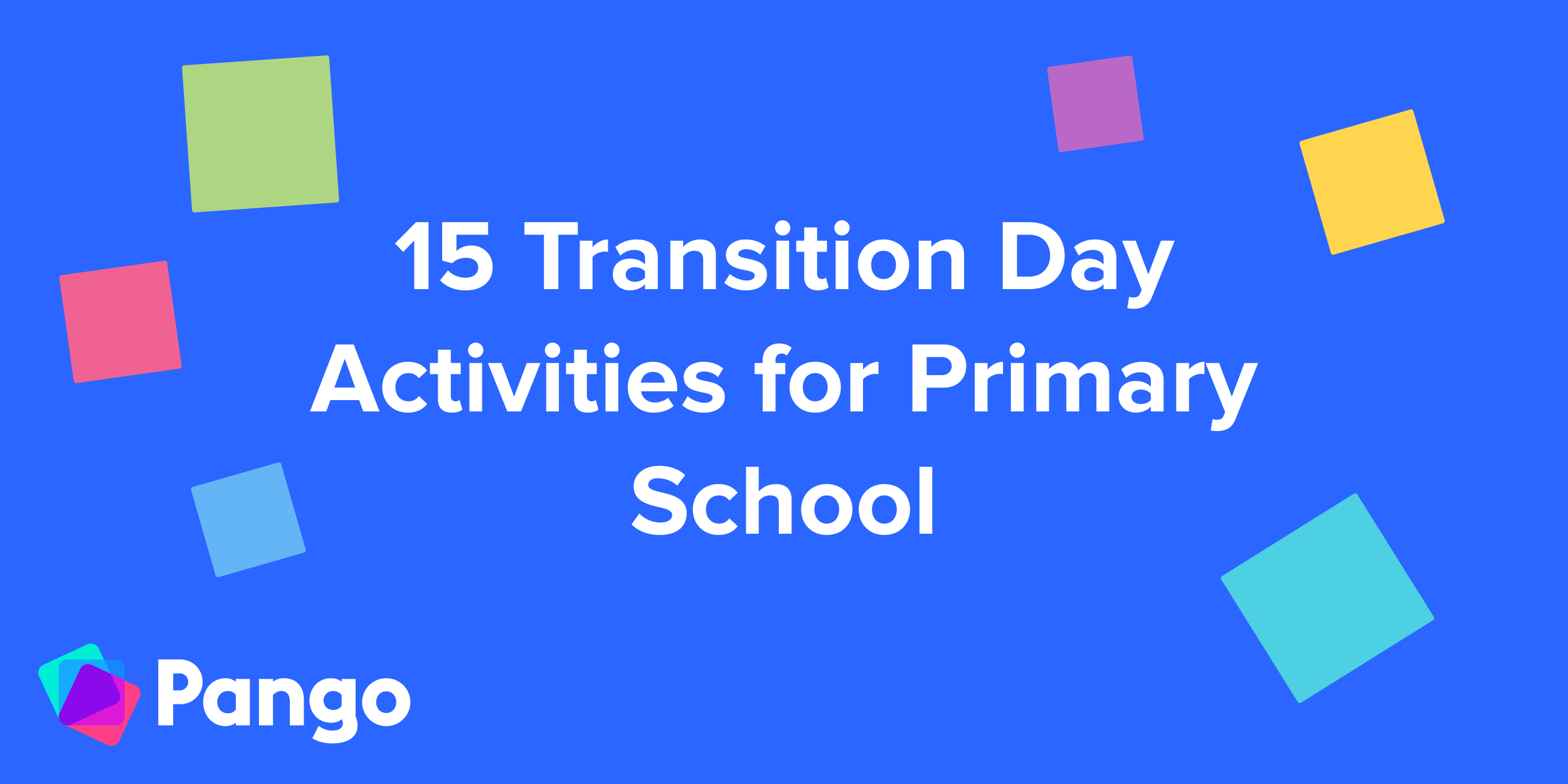Tips for First Time Teachers
.jpg)
Beginning your teaching career is both exhilarating and daunting. As an early career teacher (ECT), you’re entering a world full of opportunities to inspire, educate and make a lasting impact on your students. To help you navigate this journey, we’ve put together some top tips from fellow teachers to ensure a successful start to your teaching career.
Table of Contents:
- How Can I Build Effective Relationships with Students?
- How Can I Get Ahead with Lesson Planning?
- How Can I Develop my Classroom Management?
- How Important is Effective Communication?
- How Can I Prioritise Self-Care?
- How Can Pango Help ECTs?
- Inspire the Next Generation with Pango’s Teaching Resources and AI Tools
How Can I Build Effective Relationships with Students?
As a new teacher, your upcoming class in September will likely be filled with unfamiliar faces. Your first class will always hold a special place in your heart, but remember that building lasting relationships with your students takes time and effort. You have probably already taken the time to get to know your students ‘on paper’ to help you get ready for September, and you may have even met them during transition day. But September is where building relationships and getting to know your students truly begins.
Get to know your studentsUnderstanding your students' backgrounds, interests and preferred ways of learning can help you to plan and tailor lessons to engage them best. During those first few weeks, ensure you take the time to learn their names quickly, show genuine interest in their lives and create an inclusive classroom environment where every student feels valued. This is a great starting point to build upon across the autumn term.
Why not play some of these fun ‘getting to know you’ games during the first few days of the term.
- Two Truths and a Lie
- Human Bingo
Prepare bingo cards with different statements (e.g. "Has a sibling," "Likes pizza," "Plays a musical instrument"). Students circulate and ask each other questions to find someone who matches each statement, writing that person’s name in the corresponding square.
- Friendship Web
Have students sit in a circle. Start with a ball of string, hold onto the end, and toss the ball to another student, sharing something about yourself. That student does the same, holding onto their part of the string and tossing the ball to someone else. Continue until everyone has had a turn, creating a web.
Establish clear expectations
From the very beginning, it’s essential that you set clear and consistent expectations for behaviour in and out of your classroom. Consistency helps students understand boundaries and fosters a sense of security and fairness in the classroom. This is an important part of the students getting to know you, as much as you getting to know them.
How Can I Get Ahead with Lesson Planning?
One of the top tips that came up many times from teachers was the importance of planning ahead, when possible.
Thorough lesson planning can be really helpful as an ECT as having a well-thought-out plan will help you to stay organised as well as confident in your delivery. While you settle into your new role and get to know your students, it can also be helpful to plan some additional activities, just in case they work at a quicker rate than expected. Don't worry if this happens, as it’s all part of getting to know how your students work, as well as their strengths and areas to develop further.
While planning is essential, flexibility is equally important. Be prepared to adapt your plans based on the needs of your students and any unexpected changes. Sometimes, the best learning experiences come from those spontaneous teachable moments! Try not to be afraid to change something in the moment if it’s not working. Even the most experienced teachers have lessons that didn’t go as planned.
How Can I Develop my Classroom Management?
During your teacher training and time on placement in various settings, you will have seen different styles of classroom management, and hopefully had the chance to trial different strategies yourself.
Now is the time for you to explore what is a good fit for you and your students in terms of classroom management. Consider establishing daily routines to help manage classroom behaviour and create a structured learning environment. Clear routines for activities like entering the classroom, transitioning between tasks and packing up at the end of the day can reduce chaos and increase efficiency. Depending on the age and needs of the students in your class, you may also find tools such as visual timetables helpful to keep all students on the right track.
One of our top tips is to encourage positive behaviour through praise and rewards. Recognising students’ efforts and achievements, no matter how small, can motivate them and promote a positive classroom atmosphere.
Some of the ways to use positive behaviour reinforcement in your classroom include:
- Offer specific and sincere verbal praise for desired behaviours. Instead of just saying “Great job,” try “I really appreciate how you helped others with their activity.”
- Write positive notes on students’ work or send home notes to parents highlighting their child’s achievements.
- Create individual or class-wide sticker charts where students can earn stickers for displaying positive behaviours. Once the chart is full, students can receive a reward.
- Have a box of small rewards that students can choose from when they exhibit positive behaviours.
- Give students the opportunity to take on special roles or responsibilities, such as being a line leader or classroom helper.
- Dedicate the last part of Friday for fun activities that students can earn throughout the week by displaying good behaviour.
How Important is Effective Communication?
Building strong relationships with parents is vital. Keep them informed about their child’s progress, behaviour and any concerns you may have. Regular communication can foster a supportive network that benefits the student’s learning experience.
Don’t hesitate to seek advice and support from your colleagues. Experienced teachers can provide valuable insights and strategies to support you in developing effective communication strategies and techniques.
How Can I Prioritise Self-Care?
Teaching can be demanding, so it’s essential to take care of your wellbeing. Set boundaries to ensure a healthy work-life balance, and find time for activities that rejuvenate you. Remember, a well-rested and happy teacher is more effective in the classroom. Your first term in post as a new teacher will be demanding and at times feel overwhelming – so ensure to rest during your days off and spend quality time with your loved ones.
How Can Pango Help ECTs?
At Pango, we've always focused on helping teachers save time with more efficient lesson planning. Now, our AI assistant makes this process even faster! Just choose the right tool for your needs, input details like the year group, lesson objective, desired outcome and any specific requirements, and let our AI assistant handle the rest. You'll quickly generate unique, customised lesson plans, quizzes, assessments, presentation slides and more with just a click.
You can also discover additional units and comprehensive schemes of work from trusted content providers too. Plan your next lesson in minutes instead of hours with Pango, and let us give you a helping hand through your ECT years and beyond! Join Pango today and enjoy a 7-day free trial!
Inspire the Next Generation with Pango’s Teaching Resources and AI Tools
Whether you need a quick quiz to assess students at the end of a lesson or to create presentation slides for an upcoming activity, our high-quality content is easily accessible with just a click. Start today with a 7-day free trial to explore all our high-quality resources.


.jpg)